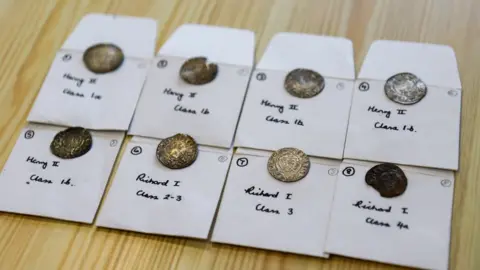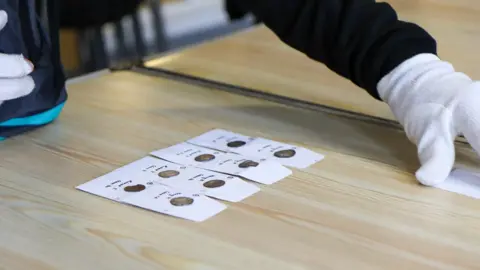Coins predating Magna Carta donated to Coventry museum
 Herbert Art Gallery and Museum
Herbert Art Gallery and MuseumTwelve medieval silver coins predating the Magna Carta have been donated to a museum where they will be displayed.
The coins were discovered by metal detectorists in a field in the Warwickshire village Ryton-on-Dunsmore.
They have been donated to the Herbert Art Gallery and Museum in Coventry where experts dated them between AD1180 and 1210.
It is thought they were stashed in a purse which has since rotted away and lost.
"The 12 coins found by the detectorists corresponds with a shilling (12 pence) in the period," Victoria Allnatt, from the museum, said.
"This would be equal to around a week's pay for a skilled tradesman and almost two weeks wages for a farm worker, so it probably represents hard made savings stashed safely away for times of trouble."
 Herbert Art Gallery and Museum
Herbert Art Gallery and MuseumThe hoard was discovered in two separate locations in the field and it is thought they had been distributed by ploughing.
Experts at the museum said the coins date from the Plantagenet era and the style of the 'short cross' pennies first issued by Henry II in AD1180.
Mints stamped into the reverse of the coins show they were struck in London, Canterbury, and York as well as Lincoln, Winchester and Northampton.
The Herbert said they were "delighted" to accept the donation, originally reported under the Treasure Act, which is due to go on public display.
"The coins can tell us something about a local community working in the landscape," Ms Allnatt said.
"It enables us to understand more about the local heritage and the people who once inhabited it."

Follow BBC West Midlands on Facebook, Twitter and Instagram. Send your story ideas to: [email protected]
